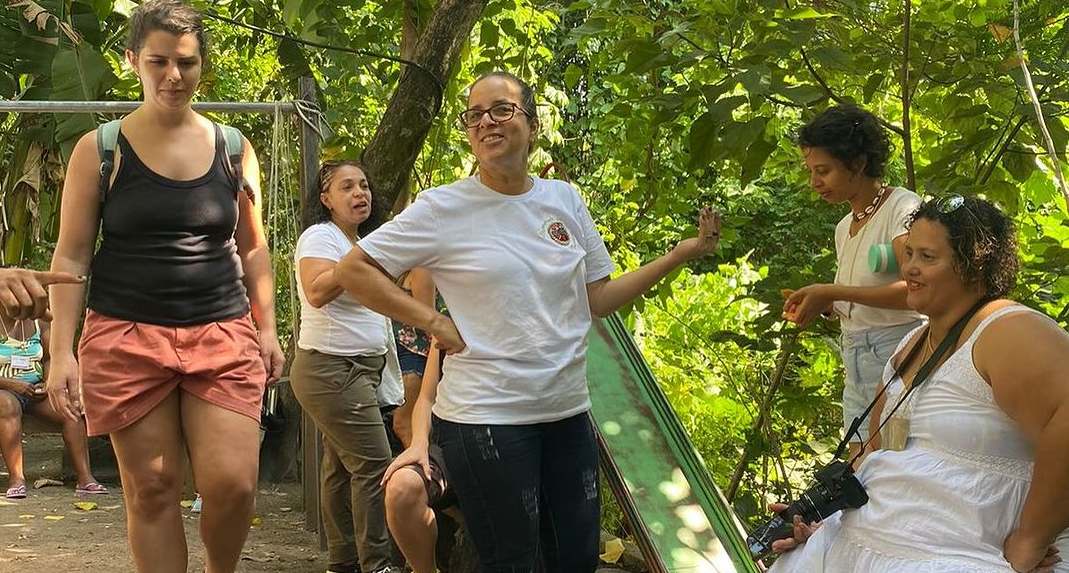
Clique aqui para Português
This article is part of a series of profiles of initiatives in Rio de Janeiro’s Sustainable Favela Network.
Initiative: Agroecological Providência (Providência Agroecológica)
Contact: Facebook | Instagram | YouTube | Email | WhatsApp +55 (21) 994659760 (Lorena Portela)
Year Founded: 2013
Community: Morro da Providência
Mission: To contribute to the promotion of health, education, and popular and traditional cultural practices through agroecology across the Morro da Providência community.
Public Events: Participation in fairs, exhibitions, seminars, and other events, as well as local classes, workshops, discussion circles, collective actions, planting, and a myriad of other green favela practices. Check out their Instagram page for more information.
How to contribute: Support Agroecological Providência through donations, volunteering, or participating in project activities. For more information and updates, follow their Instagram page.
In Brazil’s oldest favela, founded in 1897, Morro da Providência, a remarkable initiative has been transforming lives and landscapes: Agroecological Providência, founded in 2013 by duo Alessandra Roque and Lorena Portela. A project rooted in agroecology, environmental education, and community health and well-being, it is coordinated by local women and addresses the pressing issues of food security, environmental sustainability, and social cohesion in an urban area often neglected by public services. The initiative also provides art education to locals, especially children, defining itself as “a school in the making.”
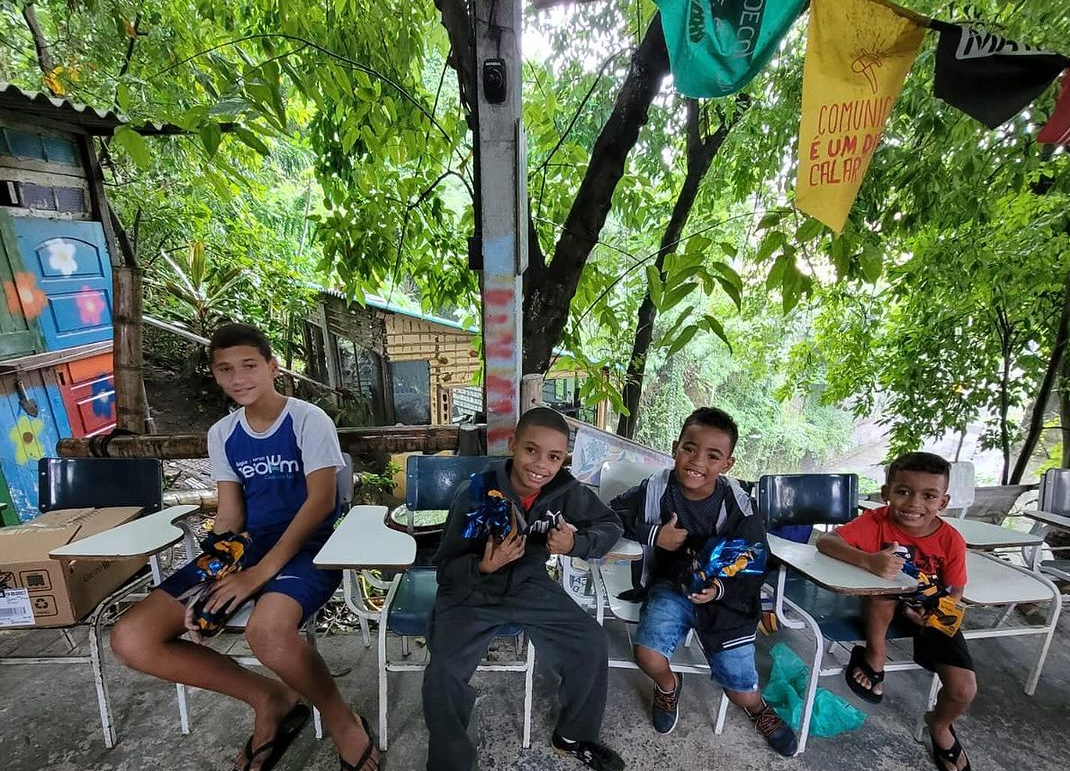
Agroecological Providência’s Birth and Growth
Alessandra Roque, Lorena Portela, and Elisangela Almeida founded Agroecological Providência to strengthen the community’s sense of belonging in 2013, addressing urban planning challenges linked to the Rio 2016 Olympics. The government and real estate developers failed to fulfill their social and environmental commitments to the area, prompting residents to take action.
For example, during the Rio Olympics, the Olympic Committee donated 12,000 seeds for reforestation. Meanwhile, in Providência, two local women took it upon themselves to plant an impressive 14,000 seeds to restore a deforested area of the community, according to Roque.
Her vision of self-management rooted in ecology is a response to the absence of basic services, such as water and electricity. Initially, the area where Roque lives was being used as a waste dump. Gradually, she began to clean up and transform the area into a space for community use, drawing on ancestral technologies and life strategies from the favela. Since then, alongside Intelligent Garden, which was initially led by other women in the community, these projects evolved into what they are today: one organization centered on education and focused on community health, environmental recovery and revitalization through practices that adapt ecological knowledge from indigenous cultures and the African diaspora to the realities of the favelas.
Lorena Portela, who was already involved with Intelligent Garden, has been co-leading Agroecological Providência alongside Roque since the two initiatives merged.
“We’re an agroecology project focused on education and health. We mainly work with women and children, teaching about medicinal and edible plants based on traditional and popular knowledge, which involve health as well as cultural and artistic practices.” — Lorena Portela
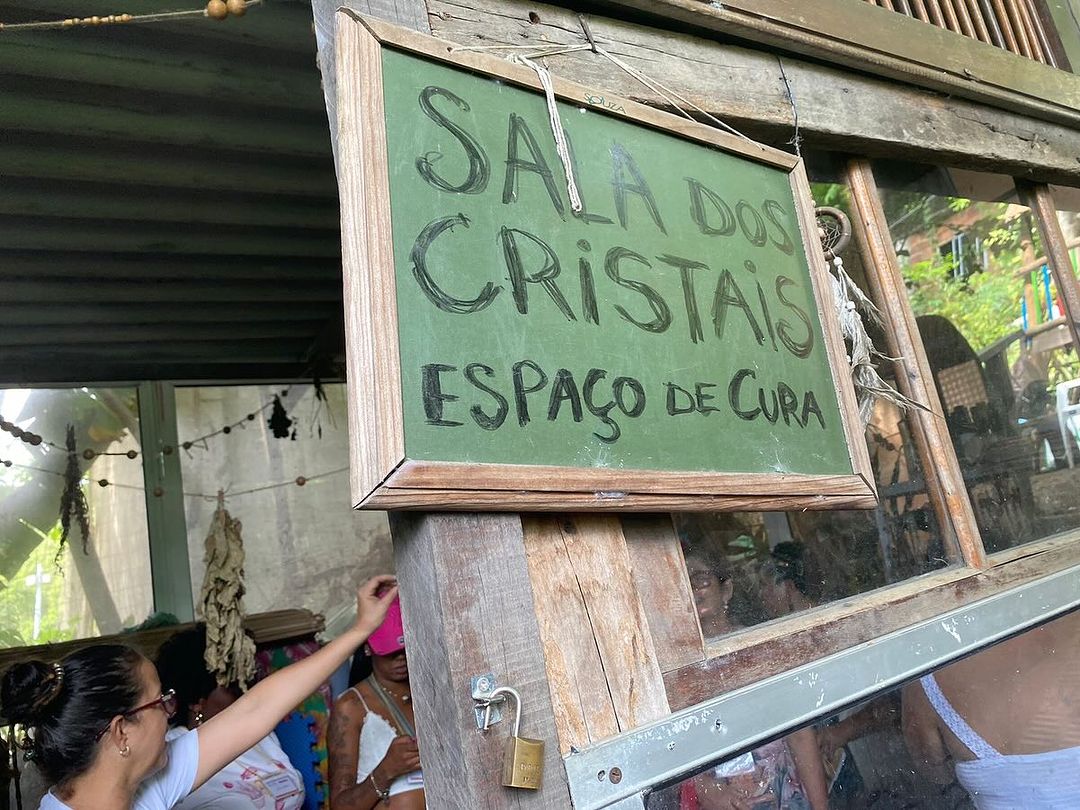
Strengthening Community Through Socio-Environmental Education
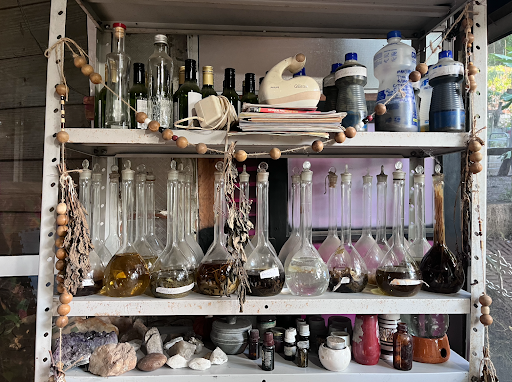
In the context of the many vulnerabilities faced in a favela, where access to land, leisure, and nature is often restricted, promoting a connection with the environment and its essential resources for care and nourishment is crucial.
“We try to address the structural challenges and pitfalls of public education… and [also] a widespread disconnect in society [regarding] land and nature, particularly in the urban environment.” — Lorena Portela
Thus, the group seeks to address these issues through agroecology, with the goal of expanding educational opportunities. As a result, Agroecological Providência has developed a range of activities aimed at promoting environmental awareness, health, and cultural enrichment. These include:
- Agroecological Education: Teaching children and teens about agroecological issues, growing vegetable gardens and the plant life cycle.
- Ecological Infrastructure: Constructing compost toilets, green roofs, and evapotranspiration basins. Implementation of cultivation areas and agroforestry systems in the community.
- Resource Production: Production of multi-purpose soap by recycling cooking oil used in favela residents homes.
- Cultural Center: Establishing a cultural center with a library, fostering discussions and cultural exchanges.
- Health and Natural Medicines: Educational activities on how to prepare, cultivate, and use medicinal and edible plants.
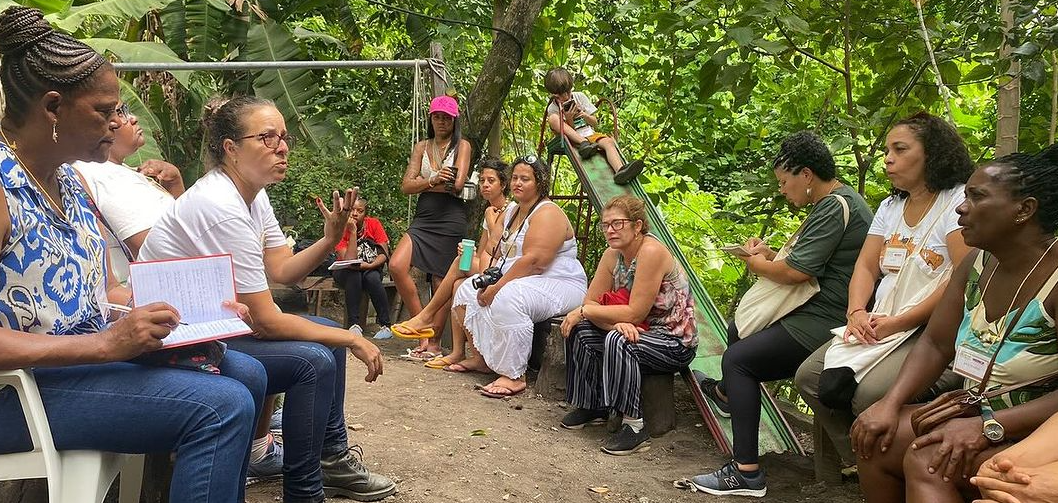
“We are trying to provide knowledge and care, focusing especially on women, but also supporting the entire community.” — Lorena Portela
Challenges and Community Impact
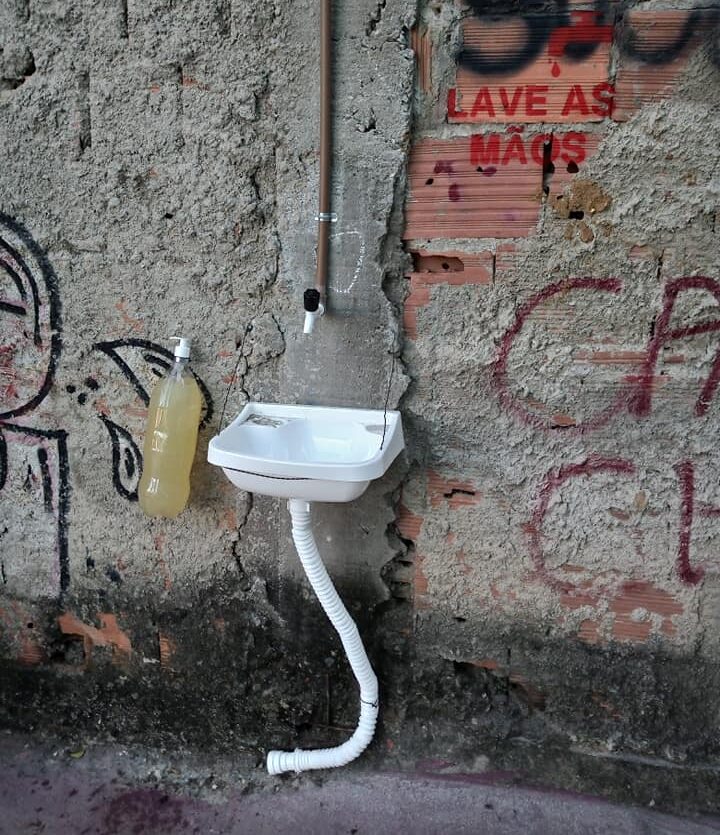
Despite significant achievements, Agroecological Providência faces ongoing challenges, particularly in securing stable funding.
“Our biggest challenge is always securing financial resources. We do not have a fixed source of funding, so we are constantly striving to keep things running.” — Lorena Portela
Understanding that Morro da Providência is densely occupied although it lacks basic resources, such as water, sewage treatment, efficient solid waste management and leisure spaces, highlights the importance of this initiative in Brazil’s first favela.
During the pandemic, Agroecological Providência installed 83 public sinks to address the unequal impact of coronavirus on Rio’s most vulnerable populations. While the world was advised to wash hands, Providência residents had limited access to water. In this context, the initiative was not just impactful; it was life-saving.
Agroecological Providência aims to expand its reach to more children, women, and youth in Morro da Providência. The long-term vision includes creating a lasting legacy, allowing the work to continue.
“Our goal is to build, maintain, and strengthen a harmonious environment of coexistence between people and nature, especially within the favela.” — Lorena Portela
*Agroecological Providência is one of over 120 favela initiatives mapped in 183 favelas across Greater Rio by Catalytic Communities (CatComm), the organization that publishes RioOnWatch. This mapping is part of our Sustainable Favela Network program, launched in 2017, to recognize, support, and strengthen the sustainable qualities and community movements within Rio de Janeiro’s favela communities. Check out all the profiles of these mapped projects here.
